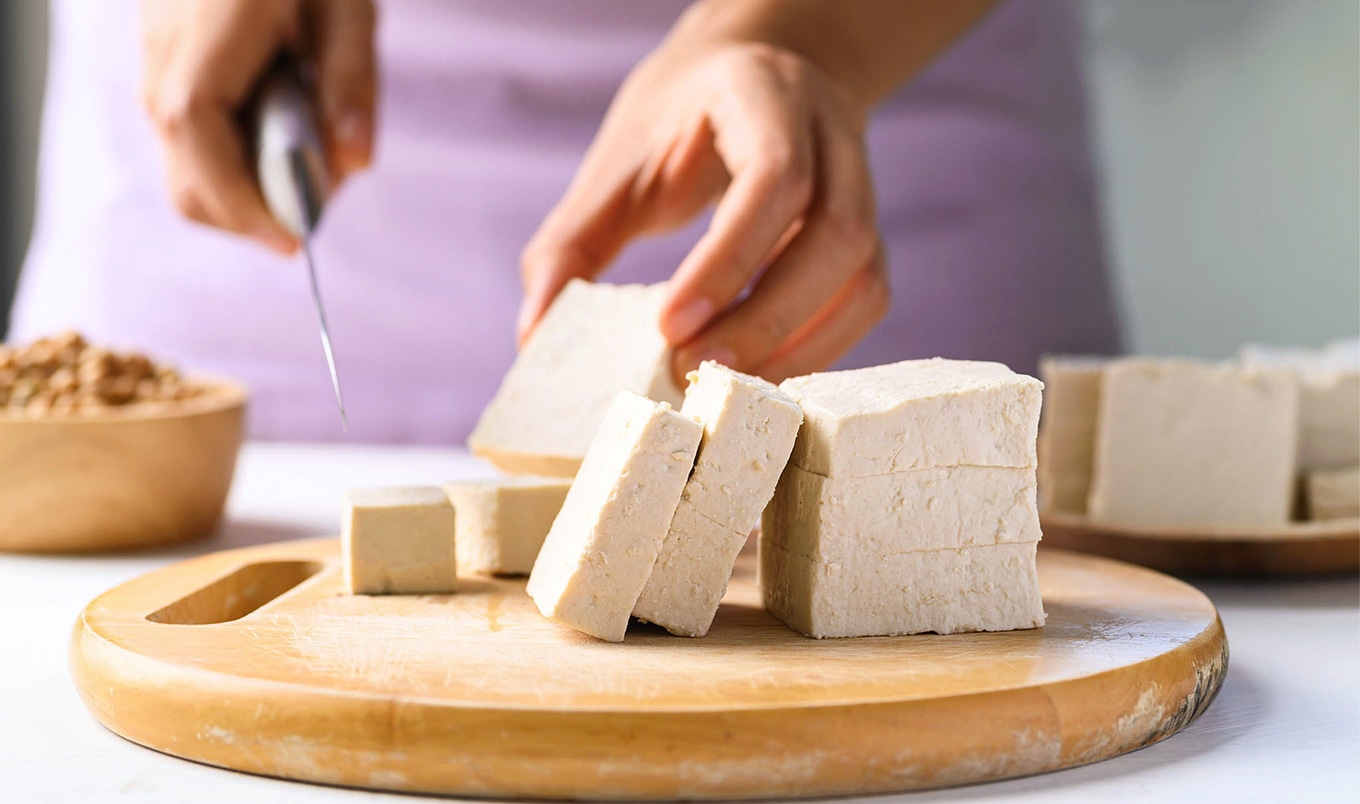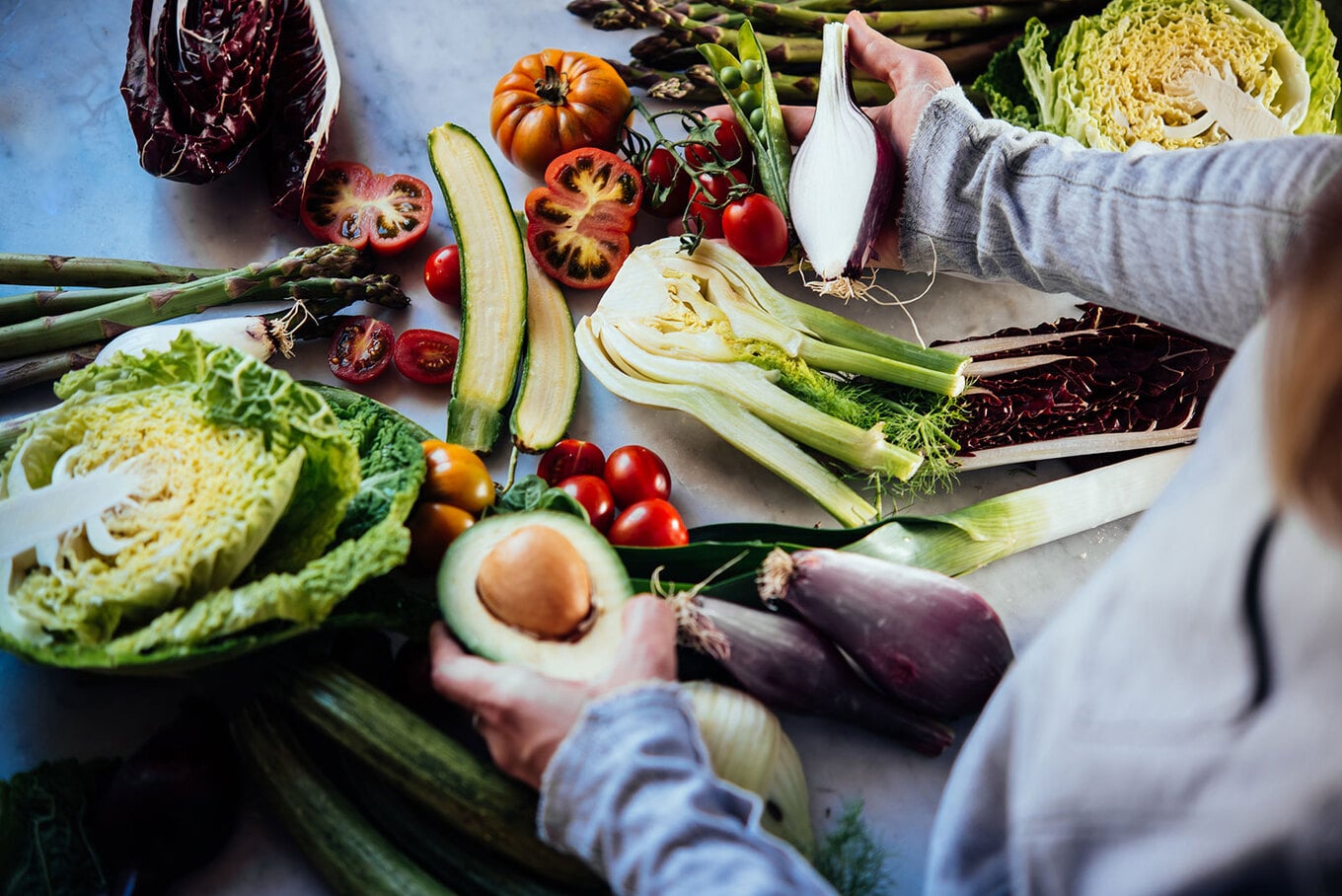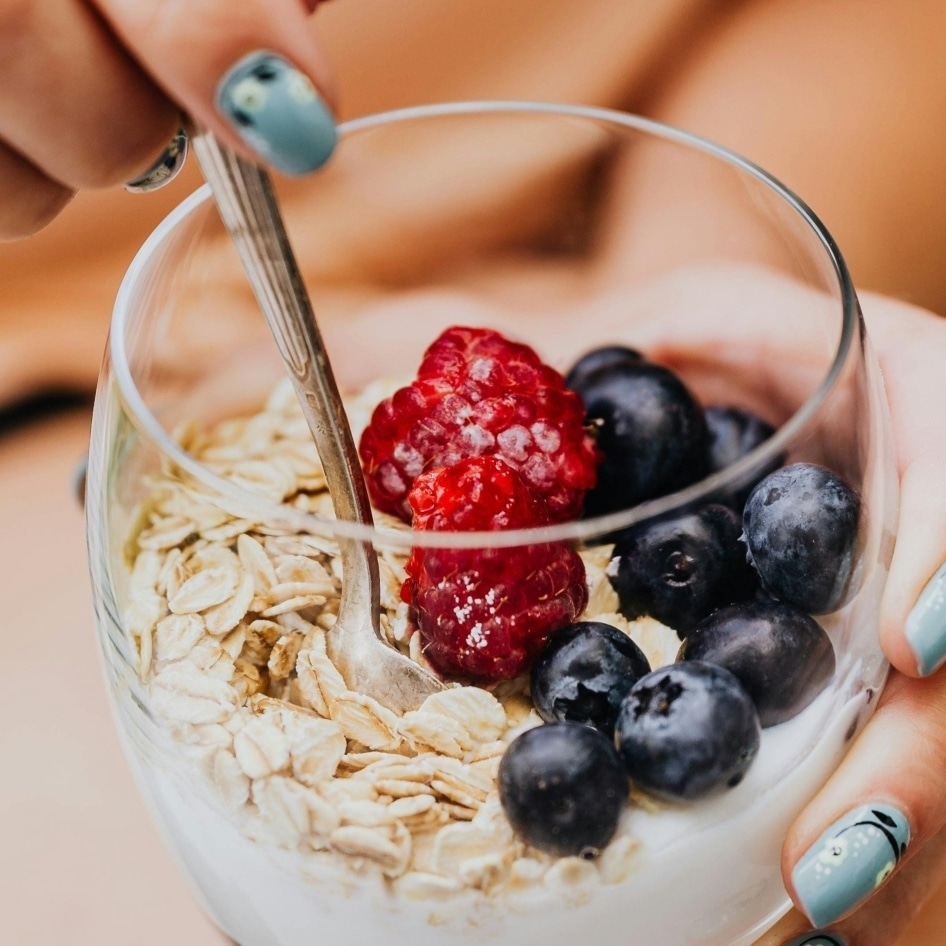New evidence shows that a plant-based diet may be the most advantageous for reproductive health. Specifically, a diet high in carbohydrates and rich in whole grains and soy can increase rates of pregnancy and live birth, according to a new study published in the medical journal Reproductive Toxicology.
The study aimed to review current evidence supporting the role of nutrition as a modifiable risk factor for female infertility and poor in vitro fertilization (IVF) outcomes.
Current estimates indicate that 15 to 20 percent of couples experience infertility—which is defined as the inability to conceive after 12 months of trying. Rising infertility rates have led researchers to become increasingly interested in identifying modifiable lifestyle and environmental factors that may affect reproductive health.
 Pexels/Karolina Grabowska
Pexels/Karolina Grabowska
The potential impact of certain dietary patterns, such as Mediterranean and Western diets, and specific foods on infertility have also been widely studied.
How foods affect fertility
In this new study, researchers reviewed the complex relationship between nutrition and fertility, with a particular focus on carbohydrates, proteins, and fatty acids.
The study found that a higher whole-grain intake has been associated with higher pregnancy and live birth rates. Likewise, eating more vegetables has been shown to improve embryo quality following intracytoplasmic sperm injection (when a single sperm is injected into each egg using a microscopic needle).
Carbohydrate intake and breakdown also appear to regulate ovarian function. In fact, the risk of ovulatory infertility was about 80 percent higher among women who consumed more carbs as compared to those with the lowest intake of carbs in the Nurses’ Health Study II of 2009.
 Pexels
Pexels
Additionally, a diet with less than 45 percent of the total energy intake from carbs has been shown to improve polycystic ovarian syndrome (PCOS) symptoms by increasing the levels of follicle-stimulating hormone and sex hormone binding globulin, all the while decreasing testosterone and insulin levels.
This is correlated with reduced weight in overweight or obese PCOS patients, according to the study. Women with PCOS may not ovulate, have high levels of androgens, and have many small cysts on the ovaries.
With a diet in which half of the daily calories are from carbs, a greater number of ova were retrieved, and higher clinical pregnancy and live birth rates were recorded in infertile and obese infertile women during IVF.
However, the consumption of sugary soda was also weakly linked to a lower number of ova retrieved and embryos obtained by ovarian stimulation cycles, in addition to a reduced live birth rate.
Animal protein linked to ovulatory disorders
The study found that animal protein intake has been positively linked to ovulatory disorders compared to plant proteins. In fact, 5 percent of energy intake provided by vegetable proteins rather than animal proteins has been shown to reduce the risk of ovulatory disorders by more than 50 percent.
Additionally, soy consumption has been correlated with better outcomes during IVF.
“There is fair evidence that animal-based proteins affect female fertility as opposed to those [from] plant-based [sources], suggesting that protein source may represent an important determinant of reproductive success,” the study says.
The study found no definitive evidence of the impact of omega-3 and omega-6 fatty acids on IVF outcomes. However, better pregnancy odds appear to be correlated with increased omega-3 fatty acid consumption—which is found in plant-based foods such as walnuts, flaxseeds, soybeans, and canola oil, and also found in fish and other seafood.
The study authors note that more research is needed to examine how nutrition is related to increased exposure to endocrine-disrupting chemicals and at what levels to better understand its impact on reproductive function.
 Adobe
Adobe
“Overall, nutrition appears to represent a modifiable factor that may play a significant role in the context of female reproduction and IVF outcomes, but the limited number of studies and the discrepancies between the available data call for further research in the area,” the study concludes.
Plant-based diet prevents endometriosis
In addition to diet affecting pregnancy rates and outcomes, researchers have examined how foods affect the female reproductive system in other ways. A study published earlier this year in the medical journal Frontiers in Nutrition found that eating a plant-based diet, along with other nutrition interventions such as avoiding meat and consuming seaweed, may help prevent and treat endometriosis.
“Eating meat and fatty foods may lead to excess estrogen in the body, which can cause endometriosis pain to flare, while fiber—found only in fruits, vegetables, grains, and beans—may help reduce pain by flushing excess estrogen out of the body,” Hana Kahleova, MD, PhD, director of clinical research at non-profit Physicians Committee for Responsible Medicine, said in a statement.
 Adobe
Adobe
Meanwhile, previous research has noted benefits of a plant-based diet on women’s menstrual cycle. An analysis of studies that was presented at the North American Menopause Society annual meeting last year suggested that diet may be a key contributor to menstrual pain (also called dysmenorrhea).
This research showed that while diets high in inflammatory foods such as meat, oil, sugar, salt, and coffee can make the pain worse, eating vegan has been shown to tame the pain by reducing the inflammation that contributes to it.
Previous research has also found plant-based diet benefits on women’s health such as its ability to reduce menopause hot flashes. A study published in the journal Menopause by the North American Menopause Society found that a plant-based diet rich in whole soybeans reduces moderate-to-severe hot flashes by 84 percent.
For the latest vegan news, read:
JUMP TO ... Latest News | Recipes | Guides | Health | Subscribe









